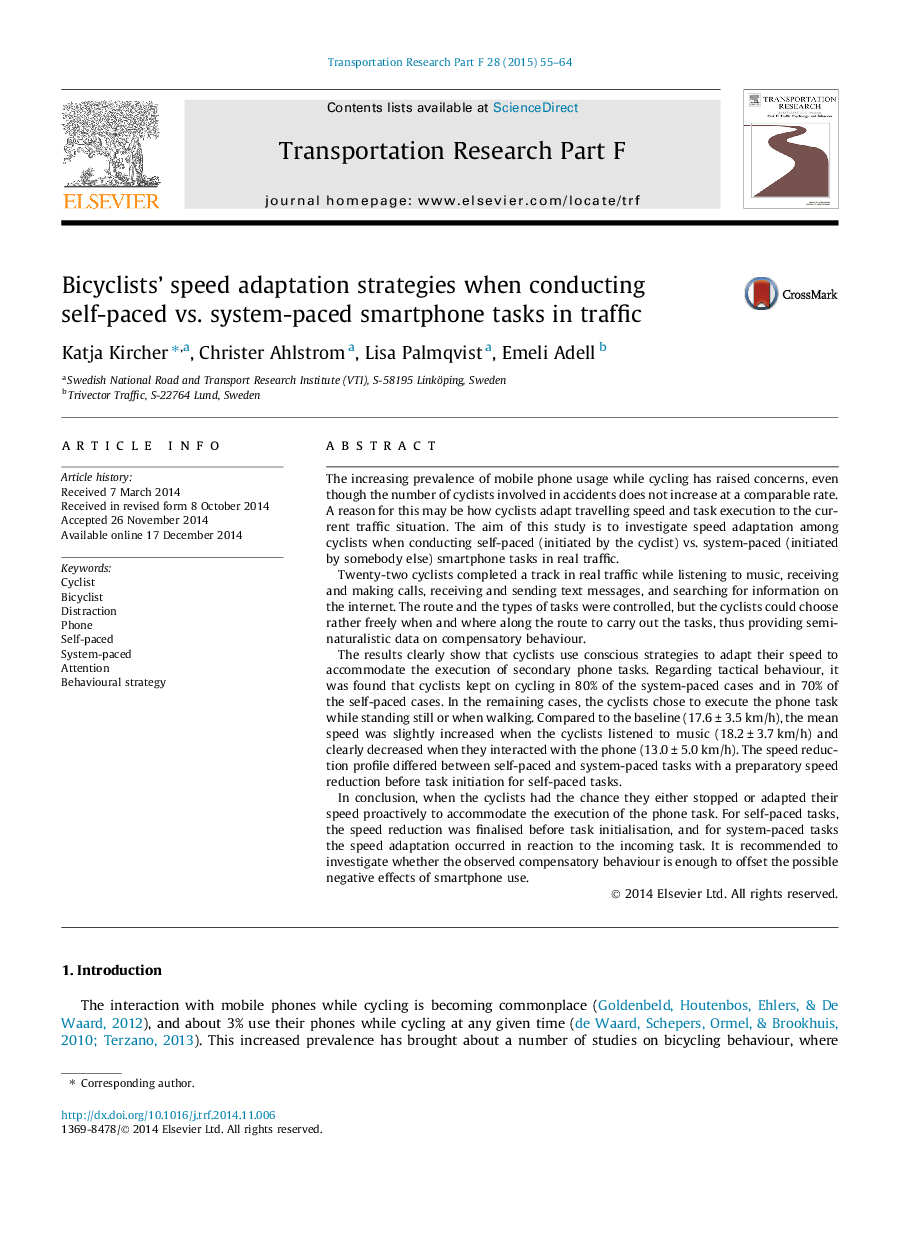| کد مقاله | کد نشریه | سال انتشار | مقاله انگلیسی | نسخه تمام متن |
|---|---|---|---|---|
| 897729 | 1472455 | 2015 | 10 صفحه PDF | دانلود رایگان |
• Cyclists use speed adaptation strategies when interacting with mobile phones.
• Cyclists decrease their mean speed before starting to interact with their mobile phones.
• Preparatory speed adaptations occur early in self-paced tasks.
• Many cyclists prepare for self-initiated tasks by stopping their bike before executing the task.
The increasing prevalence of mobile phone usage while cycling has raised concerns, even though the number of cyclists involved in accidents does not increase at a comparable rate. A reason for this may be how cyclists adapt travelling speed and task execution to the current traffic situation. The aim of this study is to investigate speed adaptation among cyclists when conducting self-paced (initiated by the cyclist) vs. system-paced (initiated by somebody else) smartphone tasks in real traffic.Twenty-two cyclists completed a track in real traffic while listening to music, receiving and making calls, receiving and sending text messages, and searching for information on the internet. The route and the types of tasks were controlled, but the cyclists could choose rather freely when and where along the route to carry out the tasks, thus providing semi-naturalistic data on compensatory behaviour.The results clearly show that cyclists use conscious strategies to adapt their speed to accommodate the execution of secondary phone tasks. Regarding tactical behaviour, it was found that cyclists kept on cycling in 80% of the system-paced cases and in 70% of the self-paced cases. In the remaining cases, the cyclists chose to execute the phone task while standing still or when walking. Compared to the baseline (17.6 ± 3.5 km/h), the mean speed was slightly increased when the cyclists listened to music (18.2 ± 3.7 km/h) and clearly decreased when they interacted with the phone (13.0 ± 5.0 km/h). The speed reduction profile differed between self-paced and system-paced tasks with a preparatory speed reduction before task initiation for self-paced tasks.In conclusion, when the cyclists had the chance they either stopped or adapted their speed proactively to accommodate the execution of the phone task. For self-paced tasks, the speed reduction was finalised before task initialisation, and for system-paced tasks the speed adaptation occurred in reaction to the incoming task. It is recommended to investigate whether the observed compensatory behaviour is enough to offset the possible negative effects of smartphone use.
Journal: Transportation Research Part F: Traffic Psychology and Behaviour - Volume 28, January 2015, Pages 55–64
